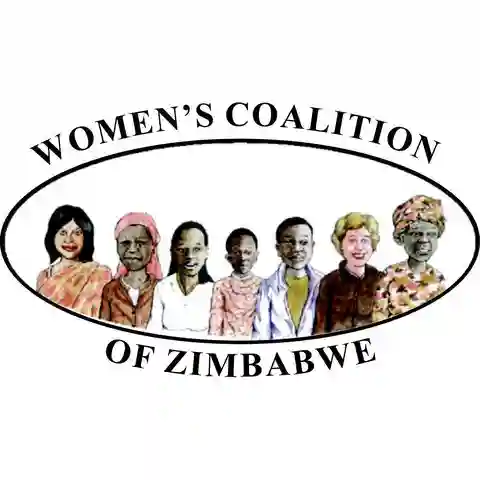FORM OF COMPLAINT
We, the undersigned,
Women’s Coalition of Zimbabwe, of 31 Harvey Brown, Milton Park, HarareDRAW the attention of the Zimbabwe Gender Commission to the following:
Over the past couple of hours, news outlets have reported on emerging details of the country’s Vice President, Kembo Mohadi being involved in ‘illicit’ relationships with his female subordinates.
Due to the power dynamics of the parties involved, this has compelled calls for investigations on possibilities of sexual harassment within the office of the Vice President.
Sexual harassment in the workplace has been a topical issue that affects many women in both the private and public sector and the handling of this case determines the country’s willingness to eliminate sexual harassment in the workplace and give victims and survivors hope.
Under national law, Section 24 of the Constitution is an aspirational provision of the right to work. In light of this provision, Section 65 then confers labour rights on every person and refers to the right to fair and safe practices and standards.
By its definition, an act of sexual harassment constitutes a violation of the constitutionally protected right to fair labour standards and also violates the right to full and equal dignity.
The right to fair and safe labour standards is further realized under the provisions of the Labour Act [Chapter28:01] whose primary purpose is the regulation of the employer-employee relationship.
Under this provision, engaging in unwelcome sexually determined behaviour towards an employee, whether verbal or otherwise, such as making physical contact or advances, sexually coloured remarks or displaying pornographic material in the workplace constitutes commission of unfair labour practice.
For employees in the public service, Section 4 of the Public Service Regulations S.I 1 of 2000 provides for ‘discourteous behaviour’ during the course of duty to include sexual harassment.
In the context of the Regulations discourteous refers to rude, ill-mannered or impolite behaviour.
Workplace sexual harassment largely goes unreported in the country because most perpetrators go unpunished and the existing form of punishment does not hinder perpetrators from displaying the same conduct.
Gender inequality at work is a reflection of inequalities that are within the patriarchal society and as such, sexist attitudes and behaviours that lead to GBV outside the work continue.
According to research conducted by Transparency International Zimbabwe (TIZ)- [2020], fifty-seven per cent of women surveyed reported that they needed to offer sexual favours in exchange for jobs, medical care and even when seeking placements at schools for their children.
This is a result of the unavailability of laws that clearly criminalise or define sexual harassment, especially in the workplace.
Whilst we take cognisance of the fact that this could be a private matter of two consenting adults that has been merely leaked to the public, it is our position that the majority of women are not safe in their workplace as they are victims of many forms of gender-based violence and are more likely to experience sexual harassment.
This has negatively impacted the lives of women by placing ceilings on women’s professions.
We highlight that fact that THE SADC Protocol on Gender and Development, Article 22, requires state parties by 2015 to enact legislative provisions and adopt and implement policies and strategies which define and prohibit sexual harassment in all spheres and provide deterrent sanctions for perpetrators of sexual violence.
It is crystal clear that the laws currently in place are not adequate to protect women from sexual harassment either in the workplace or in tertiary institutions.
It is nearly impossible to seek redress of a challenge that the law does not specifically and explicitly define as sexual harassment, given the fact that the Labour Act itself is silent on what constitutes sexual harassment.
Additionally, the Beijing Platform for Action recognizes sexual harassment as a form of violence against women and as a form of discrimination.
It calls on multiple actors including the government to ensure that government enacts laws on sexual harassment and the employer develop Anti-harassment policies and prevention strategies.
This action is also reiterated in the Convention on the Elimination of Discrimination against Women (CEDAW) and in the Protocol to The Charter on Human and Peoples Rights of Women in Africa.
This is an opportune time to advocate for Government to ratify the ILO Convention 190 which establishes new global standards aimed at ending violence and harassment in the world of work.
Violence and harassment in the world of work deprive people of their dignity, is incompatible with decent work, and a threat to equal opportunities and to safe, healthy, and productive working environments.
It remains a widespread phenomenon, present in all countries and disregarding sectors, occupations and work arrangements.
With respect, we make a humble plea that, should the Zimbabwe Gender Commission find the situation not dire enough, in order to warrant intervention, then by all means the women of Zimbabwe shall consider the Commission to have relinquished its Constitutionally charged duties which are established in section 246 of the Constitution whose provisions include:
To investigate possible violations of rights relating to gender equality
To receive and consider complaints from the public and to take such action in regard to the complaints as it considers appropriate
To advise public and private institutions on steps to be taken to ensure gender equality.
To secure appropriate redress where rights relating to gender have been violated
We confirm that to our knowledge, this matter is not pending before any Court or legal body for determination
THEREFORE your humble complainants Pray that the Commission receives and considers this complaint and to take such action in regard to the complaint as the Commission considers appropriate.
And your COMPLAINANTS will ever Pray.
The Women’s Coalition of Zimbabwe
Women’s Coalition of Zimbabwe Statement On VP Mohadi's 'Illicit' Relationships {Full Text}

